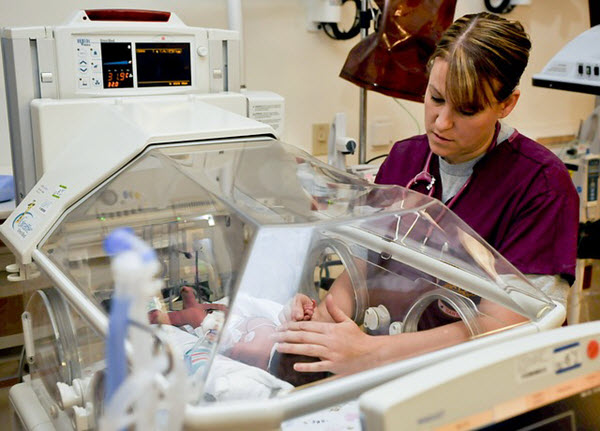Being a nurse is one thing. Being a highly effective nurse, meanwhile, is a different story. Apart from the lessons you learned during college, you also need to have specific positive traits to match your skills and expertise. The combination of these things makes a successful nurse.
If you are wondering what those specific traits of highly effective nurses are, the following list should be able to give you a clearer idea.
1Calm
Stress is a part of nursing- from issues of understaffing to having to deal with difficult patients and co-workers. In addition to that, there is also the pressure to work longer hours and being paid less than what you deserve.
A highly-effective nurse should be able to remain calm and focused on his tasks despite these issues. Remaining calm can help prevent a difficult situation from escalating as well as in easing tensions. They can also keep nurses on top of an emergency. A nurse who is able to handle stress calmly has the greatest chances of performing the best on the floor.
2Organized
A lot of nurses would argue that being able to multitask is one of the best traits a nurse can have. With so many tasks to finish in so little time, one has to know how to hit two birds with one stone.
Although effective for some, multitasking isn’t actually that great. When your attention is divided, it makes you more prone to committing mistakes, especially with medication administration.
So, instead of relying on multitasking, work more on your organizational skills. Know how to set priorities and improve your time management. If you can’t do everything, make sure to delegate appropriately. Keep a timeline of your tasks as well to avoid going home later than you are supposed to.
3Sharp-eyed
A highly effective nurse should know how to pay attention to everything that goes around in his area. Apart from being watchful to the changes in his patient’s status, a nurse must also be able to carefully assess his environment to avoid hazards and accidents. Trash cans, for example, should never be left to overflow. An IV tubing must be replaced as frequently as hospital policy dictates to avoid causing infections in patients.
4Optimistic
Nurses who have an optimistic attitude are likely to help their patients heal faster. They set the proper mood that can improve the patients’ well-being, especially those who have been in the hospital for quite a while already.
An optimistic attitude can also keep nurses from experiencing burn out. When one is able to have a good laugh despite the long working hours and the endless tasks per shift, he’ll likely enjoy what he is doing—no matter how difficult it is.
5Empathetic

Being exposed to a lot of troubling things can desensitize nurses in the long run. Seeing health problems, deaths and chronic illnesses every single day can make them immune to their patients’ emotions and feelings. Over time, they can look at and consider their patients as just cases and medications.
Nurses who are able to remain empathetic to their patients are likely to deliver better and more humane care than others. And when patients feel that their nurses genuinely care for them, they feel more trusting and comfortable. These things facilitate to early recovery.
6Good educators
Nurses’ jobs don’t end with treatment and rehabilitation. In fact, their biggest task is in preventive care. They teach patients about the necessary changes they need to make in their lifestyle to avoid certain diseases.
An effective nurse should know how to confidently speak in public . He needs to have good communication skills so that he can relay his ideas well. Apart from his speaking skills and teaching methods, a good nurse must also know what he’s talking about. He backs up his lessons with intensive research and visual aids to make sure his patients thoroughly understands his lessons.
See Also: Transitioning? 6 Good Reasons Why You Should Consider Applying for Nurse Educator Jobs
7Flexible
To be an effective nurse, one must be flexible when it comes to working hours and job responsibilities. Most of the time, nurses are required to wear different hats at work, especially in short-staffed hospitals. Apart from the routine work that they do, some nurses may also be asked to be a nurse aide or a transporter. Some may even do housekeeping tasks just to ensure the comfort and safety of their patients.
In addition to the tasks, nurses must also be open to working longer hours and during the holidays. People don’t stop getting sick just because it’s Christmas or New Year’s eve. In some cases, nurses may even miss important family events because they have to be in the hospital and work.
8Good listeners

Despite the tons of things nurses have to accomplish, they must never forget the value of active listening. Patients can give out important details that can help with diagnosis and prevention of complications. In some cases, they can even share vital information that can give both nurses and families ideas on their end-of-life care decisions.
Nurses spend more time with patients than any other members of the health care team. Because of this, they should have a better understanding of what’s happening to them.
See Also: Don’t Say That, Say This: 7 Examples Of Better Bedside Manners For Nurses
9Eager to learn
Continuing education makes nurses more effective in what they do. Since patients’ health care needs continue to grow, they need to know how to keep up with the new information and changes in technology. Reading journals, attending seminars, and going to national conferences are some of the ways nurses can improve their knowledge base and level of skill.
10Team player

Working as a team is critical in today’s healthcare system, especially with how complex it has become. Patients are now getting admitted with multiple health concerns. This pushes medical practitioners to take a multidisciplinary approach.
An effective nurse knows these things and concentrates not solely on his workload, but on the goal of the team. He’s able to perform his independent functions while coordinating with a team of health care workers.
See Also: 6 Reasons Why Care Coordination Is So Exciting For Nurses



















